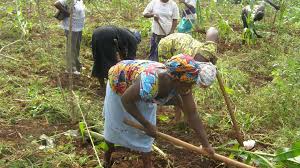Despite the numerous international treaties signed by Nigeria to shun discrimination in all leadership cadres, a social crusader and resource person at a training workshop, Mrs Ene Ede, has described Nigeria’s failure again to elect a single woman as presiding officer at the 10th National Assembly amounted to parliamentary deficit.
Ede who made this observation as a speaker in Abuja at the Gender Sensitive Reporting workshop called on President Bola Ahmed Tinubu to ensure that more women were appointed into his cabinet.
Ede, specifically, suggested that President Tinubu should appoint a woman like the former Economic and Financial Crime (EFCC) chairman Mrs Farida Waziri as the next National Security Adviser, adding that nothing should stop the President from appointing a woman as his spokesperson.
As a way of compensating for not electing women as a presiding officers at NASS, she also advocated that the few women that made it to the national Assembly should be appointed into juicy committees as a way of empowering them for future responsibilities.
She alleged that men at the National Assembly were in the habit of using the juicy committees to enrich themselves at the expense of the women.
“Why are they using the juicy committees to enrich themselves? The structure is against the woman,” she said.
Mrs Ede said she would write to the president and the Secretary to the Government of the Federation to draw their attention to the lopsided structure that has worked against female politicians.
A communique issued at the end of the stressed the need to develop the capacity of media personnel on approaches and methods of gender-sensitive reporting to support women’s political leadership.
The journalists resolved to use a gender lens in reportage on women’s political leadership, as well as use key messaging and tailor specific messages to adequately capture the perspectives of women in politics, amplify their voices and build popular support for them.
They also, among other things, resolved to conduct more research and utilize data to enhance gender-responsive reporting, just as they agreed to deploy new strategies to execute their work; engage in gender-sensitive reporting, write more local stories, and provide the human angle to reports.
The training was organised by Kimpact Development Initiative (KDI) with support from Women’s Democracy Network, a women empowerment flagship initiative of the International Republic Institute (IRI), under the supporting advancement of ender equality project.




